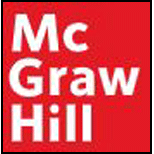
To determine: Whether the statement “Cognitive learning theorists are concerned only with overt behavior, not with its internal causes” is true or false.
Introduction: A process of gaining information and behaviors through experience is called learning. Humans, animals, and even some machines have the capability to learn. If a response is associated with a particular stimulus, then it is called associative learning. Associative learning is facilitated by conditioning. The two main forms of conditioning are classical and operant conditioning.
Answer to Problem 1E
Correct answer: The given statement is false.
Explanation of Solution
Cognition is a process of acquiring and understanding the knowledge through experience and thoughts. Learning is a process of acquiring knowledge through experience, study, or being taught. Thus, cognition requires learning and learning requires cognition. Cognitive learning approach focuses mainly on the internal thoughts and expectations of learners. Cognitive learning theorists are primarily concerned with mental activities of human beings such as thinking, remembering, knowing, and communicating the information.
Want to see more full solutions like this?
Chapter 17 Solutions
UNDERSTANDING PSYCH.-ACCESS >CUSTOM<
- Explain the emergency management that will be given during the following mental disorders: 1. Seizure 2. Delirium Tremens 3. Acute Alcohol Withdrawal Syndrome 4. Wernicke’s Encephalopathy 5. Behaviour Managementarrow_forwardExplain Cognitive-behavioural theory under the following headings: A. Description of theory B. Assumptions and key ideas C. Fundamental principles D. Implications for psychiatric-mental health nursing practicearrow_forwardFor this assignment, you will be working with a partner to conduct an interview to identify stimuli for the preference assessment. Pair up with a group member. Please set aside about 10-15 minutes to interview your partner to identify potential preference items using the sample introductory script. Write down the responses on this document. “Thank you for participating in this brief preference assessment interview. The purpose of this conversation is to explore potential sources of motivation that can be used to create a more fulfilling work and school experience. Within a 10-minute interview I will be asking open-ended questions about things you would work for given a chance to earn a reinforcer contingent upon performance. Please be open and honest in your responses. There are no right or wrong answers. Please use the space provided below to list specific items that can be utilized for the Paired Stimulus and the MSWO (Multiple Stimulus Without Replacement) preference assessment.…arrow_forward
- The show Riverdance was influenced by which of the following elements? Mark all that apply. Brazilian samba Rock Tap dance Russian folk ballet Flamenco dance Irish step dancearrow_forwardWhich of the following statements is true about the message Riverdance the show proclaimed thorough their performances? Mark all that apply. - "We are different from the British." - "We are one kind. We are one people." - "Our traditions don't change." - "We are contemporary Ireland." - "We belong to the world stage."arrow_forwardDebussy’s music tends to: - Have strong rhythmic pulse - Sustain a strong sense of tonality - Use the full orchestra for massive effects - Sound free and almost improvisationalarrow_forward
- In the arts, the term commodity refers to: - An intercultural exchange between different art forms. - A mass-produced unspecialized product. - The creation of a cultural object of economic value intended for exchange or profit. - The creation of a comfortable and far-reaching cultural experience.arrow_forwardWhich of the following statements is true about the message Riverdance the show proclaimed thorough their performances? Mark all that apply. - "We are different from the British." - "We are one kind. We are one people." - "Our traditions don't change." - "We are contemporary Ireland." - "We belong to the world stage."arrow_forwardWhich of the following statements is true about the message Riverdance the show proclaimed thorough their performances? Mark all that apply. - "We are different from the British." - "We are one kind. We are one people." - "Our traditions don't change." - "We are contemporary Ireland." - "We belong to the world stage."arrow_forward
- Match the term with its short description. Prompts Answers Glissando A theoretical system for composing music without a tonal center 12-tone technique An ordered set of the 12 pitches of the chromatic scale Tone-row Rapid slide up or down a scale Rhapsody A one movement work in free form and improvisatory characterarrow_forwardSelect the primary characteristics of fusion jazz below. Mark all that apply - Large big band - Incorporation of electric instruments - Large percussion section - Simple form and harmonyarrow_forwardIf you live in Chicago, one of the greatest jazz cities in the world which jazz club could you visit to listen to live jazz? - The Greenmill - All of the above. - Andy's Jazz Club - Winter’s Jazz Clubarrow_forward
 Ciccarelli: Psychology_5 (5th Edition)PsychologyISBN:9780134477961Author:Saundra K. Ciccarelli, J. Noland WhitePublisher:PEARSON
Ciccarelli: Psychology_5 (5th Edition)PsychologyISBN:9780134477961Author:Saundra K. Ciccarelli, J. Noland WhitePublisher:PEARSON Cognitive PsychologyPsychologyISBN:9781337408271Author:Goldstein, E. Bruce.Publisher:Cengage Learning,
Cognitive PsychologyPsychologyISBN:9781337408271Author:Goldstein, E. Bruce.Publisher:Cengage Learning, Introduction to Psychology: Gateways to Mind and ...PsychologyISBN:9781337565691Author:Dennis Coon, John O. Mitterer, Tanya S. MartiniPublisher:Cengage Learning
Introduction to Psychology: Gateways to Mind and ...PsychologyISBN:9781337565691Author:Dennis Coon, John O. Mitterer, Tanya S. MartiniPublisher:Cengage Learning Psychology in Your Life (Second Edition)PsychologyISBN:9780393265156Author:Sarah Grison, Michael GazzanigaPublisher:W. W. Norton & Company
Psychology in Your Life (Second Edition)PsychologyISBN:9780393265156Author:Sarah Grison, Michael GazzanigaPublisher:W. W. Norton & Company Cognitive Psychology: Connecting Mind, Research a...PsychologyISBN:9781285763880Author:E. Bruce GoldsteinPublisher:Cengage Learning
Cognitive Psychology: Connecting Mind, Research a...PsychologyISBN:9781285763880Author:E. Bruce GoldsteinPublisher:Cengage Learning Theories of Personality (MindTap Course List)PsychologyISBN:9781305652958Author:Duane P. Schultz, Sydney Ellen SchultzPublisher:Cengage Learning
Theories of Personality (MindTap Course List)PsychologyISBN:9781305652958Author:Duane P. Schultz, Sydney Ellen SchultzPublisher:Cengage Learning





